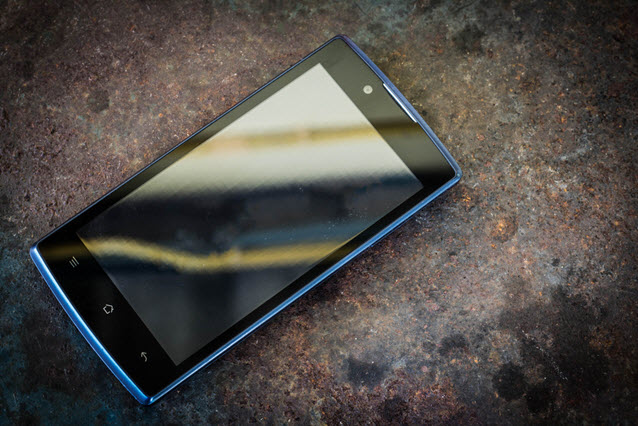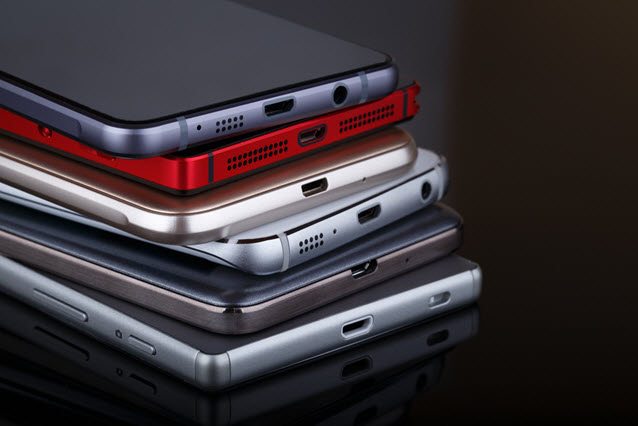
One benefit of there being a variety of mobile phone carriers is the ability to switch companies if you’re unhappy with your current provider. But while switching carriers is an option, it can also be costly depending on when you decide to jump ship. What are Early Termination Fees? Most people who sign a long-term service agreement are familiar with early termination fees. When you sign these agreements, you’re essentially agreeing to stay with the network for a certain period of time, usually two years. If you end your relationship with the carrier early, you must pay the early termination fee before you’re released from the agreement. The problem with these fees, however, is that they aren’t cheap. Early termination fees vary depending on the mobile carrier. But on average, these fees run about $250 to $650 based on the type of phone and the installment plan. While these fees might seem excessive, they protect mobile carriers who allow customers to purchase smartphones with little upfront cash, and then pay off their balance over two years with an installment plan.… Read more

It’s not unusual for people these days to cancel their landline phone service and only use their cell phones. Cell phones are sometimes a better alternative because you’re able to communicate with others no matter your location. But while landline phones are becoming a rarity, there are a few things to consider before ditching yours. If you’re on the fence about whether to keep your landline, here’s a look at a few pros and cons of a cell phone-only home. Pros: Your phone number isn’t in the phonebook One benefit of ditching your landline is that you’re able to keep your phone number private. Your number is no longer listed in the phonebook once you cancel your house services, which is a good thing if you don’t want to be too accessible. Unfortunately, canceling your landline doesn’t remove your name from the phonebook. I recently discovered that although we haven’t had a landline phone in over four years, we do have a Whitepage.com listing with our name and address. So there’s still a way for people to find us, but… Read more

Your cell phone likely contains your whole life. It has your contacts, your emails, your notes and your calendar. Therefore, if you lose your cell phone, everything could come to a standstill. Because we take our cell phones everywhere, they're extremely easy to misplace. You could leave yours at work, a friend’s house or in a public place. Before you panic, there are a few steps you can take to help get your phone back. Or at the very least, protect your personal information. Here’s what to do when you can’t find your phone. Call or text your phone If you can’t find your cell phone, you might think it’s gone forever. But before you think the worst, borrow someone else's phone and call or text your phone. It might have fallen in between furniture, or you may have left it in an odd place around your home. If you call or text the phone, you might hear it ring or buzz and you can follow the sound. Or if you left it someplace else, a good samaritan might answer the phone… Read more

Even though many cell phone providers offer payment plans to make smartphones more affordable, there’s no denying the expensive nature of the latest phones. For this reason, you might not upgrade your phone every year. Instead, you might keep the same phone for years if it’s in good condition. Some people, however, hold on to a phone until it completely dies. Of course, it makes more sense to purchase a new phone before your current one gives out completely. Here are a few signs it's time for a much-needed upgrade. Your touch screen stops working It’s not uncommon for a phone’s touch screen to act glitchy from time to time. This happens to everyone. But if you have an older phone and you notice that your touch screen is becoming slower or doesn’t respond often, it might be time to trade in your older model for a newer one. Apps crash or the device shuts down As cell phones become older, they also become less reliable. And once your smartphone is past its prime, some apps may crash unexpectedly or… Read more

If your day job involves computer work and staring at a screen for hours, you may be all too familiar with eyestrain. But your computer or laptop aren’t the only devices that can trigger eyestrain. Depending on how much time you spend looking at your smartphone, this device may also put too much stress on your eyes. Smartphones can be useful in different areas of life. We use our phones to search the Internet, play games, watch movies and read articles. Many people also reach for their phone when bored. All of this, however, often results in staring at a bright light for hours. And over time, this light wears on the eyes. Smartphone eyestrain comes on gradually. Signs include tired eyes, dry eyes, blurry vision and headaches. Of course, other conditions can also trigger these symptoms. But if symptoms develop after being on your phone for a while, your device might be to blame. Here’s what you can do for relief. Blink Blinking is a normal reflex, so normal that many people aren’t aware when they do it. If… Read more
- « Previous Page
- 1
- …
- 8
- 9
- 10
- 11
- 12
- …
- 23
- Next Page »